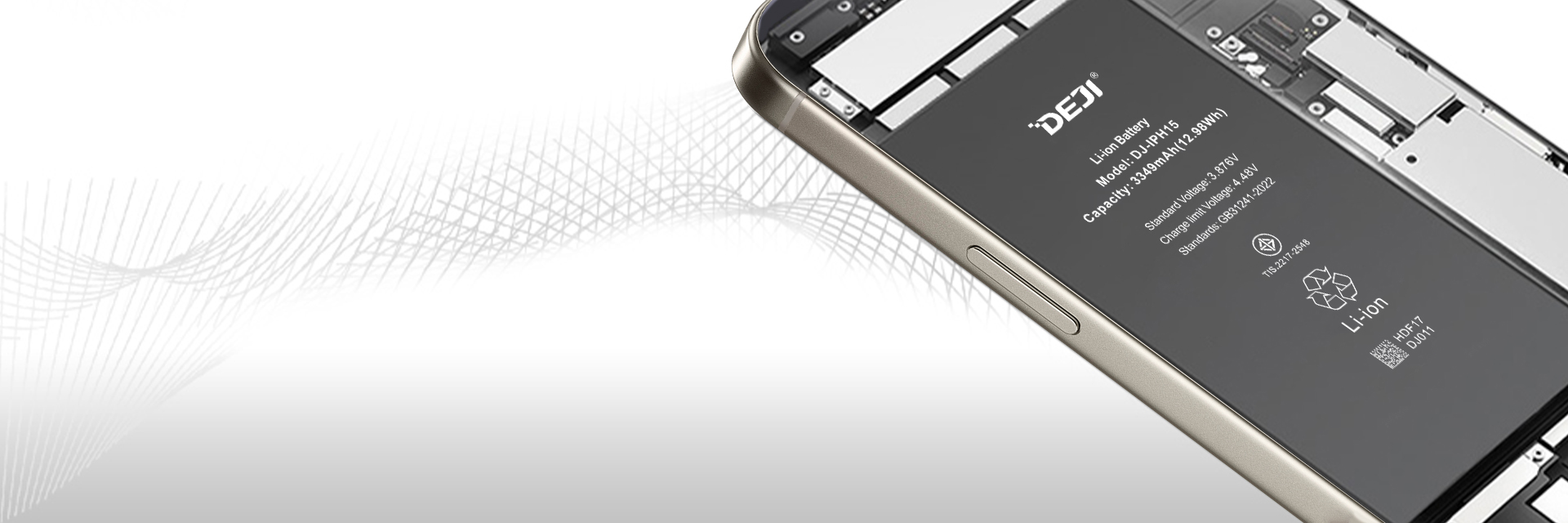Picture this: You're climbing into bed after a long day, and you glance at your iPhone. The battery's down to 10%. Will charging the iPhone overnight damage the battery?
You've heard mixed advice on this topic - some swear it ruins their phone’s longevity while others claim no harm done. So, who's right?
This isn't just about squeezing more hours out of each charge; it could be the key to extending your phone’s overall lifespan too.
We're going to bust some common myths, follow Apple's official advice for good battery health, delve into the best charging habits and give useful tips on how to make your battery last longer.
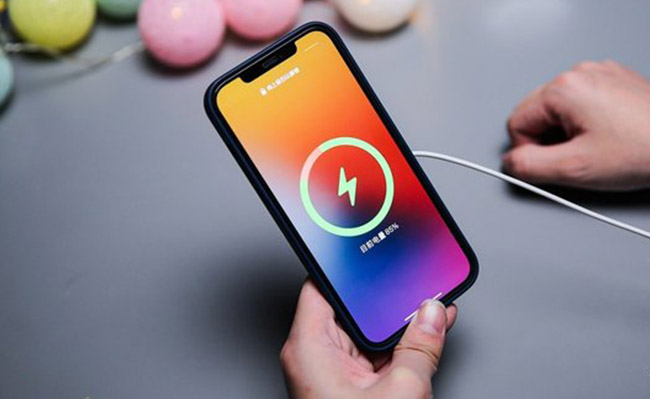
Debunking the Myth: Charging the iPhone Overnight
The debate about leaving your phone plugged in overnight has been ongoing for years. Many people have left their iPhone to charge overnight, waking up to a fully charged phone without any noticeable damage.
You might inquire, "Will my iPhone's battery become exhausted if I keep it charging overnight?" The straightforward response is no. iPhones are designed smartly - they stop drawing power once they're fully charged. This eliminates potential problems that could occur from keeping your phone plugged in.
Your iPhone knows when it reaches 100 percent charge and stops further energy intake. But here's where things can be a bit tricky: even though there's no harm done, this doesn't mean you should always leave your phone charging all night long. While not damaging per se, prolonged periods of being connected to a power source may contribute slightly towards decreasing its overall lifespan due to heat generation during extended charging sessions.
But the thing is, a lot of folks are used to leaving their iPhones plugged in overnight. So, what's the deal with minimizing the damage to the battery caused by this charging habit?
How to Reduce the Damage to iPhone Battery by Charging Overnight
The following content offers three ways to effectively reduce the damage to your battery overnight, namely replacing a slow charger or charging cable, choosing a smart charger or outlet, and reducing the heat generated when charging your phone.
1. Replace the slow charger or charging cable
You can buy a set of slow chargers and cables and plug your phone in before going to bed. Slow chargers can take several times slower to fully charge than fast chargers, bring less heat to the phone, and are safer for charging at night.
This is particularly suitable for Apple iPhones, especially when the "Optimized Battery Charging" feature is enabled, as the charging speed slows down after reaching 80% and using a 5W Apple charger overnight works just right.
2. Choose a smart charger or socket
Now there are chargers on the market that automatically cut off when fully charged and sockets that can be set to cut-off time, which are very suitable for charging during the day or at night. But be careful to confirm whether the product meets Apple's certification before purchasing a smart power-off charger.
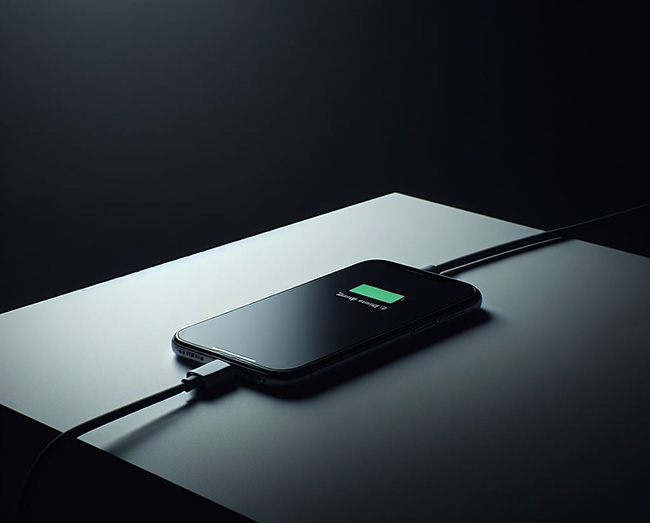
3. Reduce the heat generated when charging your phone
Overheating temperature is the biggest killer of batteries. Some cell phones even get hot when charging, so you should do the following when charging at night:
(1) Don't put it under your pillow to charge. This habit many people have, the phone is placed under the pillow charging, not only strengthens the electromagnetic radiation, quietly affects our brain, and the phone is easy to overheat.
(2) Naked charging. It is recommended to charge without a case unless it is in winter.
(3) Close any programs before charging. It is necessary to close the game or chat program before charging. Or, you can make a good time to automatically turn on the Do Not Disturb mode when it reaches the scheduled bedtime.
(4) Unconventional Method
If you have the habit of getting up at night, then unplug the charging cable when you go to the bathroom in the middle of the night. But you may also forget about it.
Different Charging Methods and Their Impact on Battery Health
Charging your iPhone isn't a one-size-fits-all process. Considering the various methods of charging, each having its own advantages and disadvantages, is essential.
Wireless Charging vs Cable Charging
The modern convenience of wireless charging is appealing. But it can cause more heat compared to cable charging, potentially impacting battery health over time.
Cable charging through a lightning cable or power adapter remains the traditional choice for many. It's efficient but needs physical access to an outlet.
Newer iPhones also support MagSafe chargers - they're wireless yet provide faster charge times than standard Qi pads. However, like other forms of wireless charging, there might be potential problems concerning heat generation during extended periods of use.
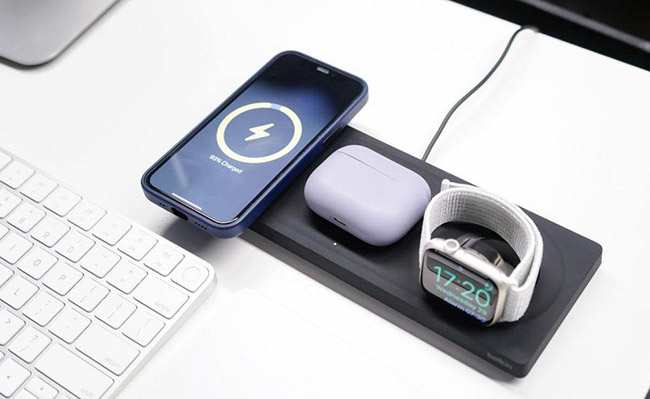
Can I leave an iPhone charging overnight?, you ask? Yes. Today’s smart batteries cut off the power when fully charged so that won’t damage your phone’s battery.
Remember: whichever method you choose should align with your daily routine and device requirements.
Fast Charging: Is it Harmful to iPhone Batteries?
The advent of fast charging has revolutionized how we power up our devices. But, does this swift juice-up spell trouble for your iPhone's battery? The answer is not a simple one.
Apple, the brains behind the tech, claims that iPhones can support fast charging without harming their batteries. They have engineered a system where once an iPhone reaches 80% charge during a 'fast charge', it switches to slower charging speed - ensuring no potential damage from overheating.
However, keep in mind that all forms of charging contribute towards your phone’s overall charge cycles. Fast charging doesn't add more strain than regular-speed juicing when used correctly. Yet if you're frequently getting your device from zero to hundred real quick - those repeated full recharge cycles could shorten its lifespan over time.
In short: Moderation and mindfulness are key when using fast-charge features with any device including iPhones. Keep an eye on usage habits and temperatures while giving these modern conveniences a go.
Extending the Lifespan of Your iPhone Battery
Your iPhone's battery is like a workhorse. It powers everything you do, from sending emails to streaming your favorite shows. But over time, it can start to wear out and lose its charge more quickly.
The Role of Heat in Battery Degradation
Batteries don't enjoy the heat any more than we do. High temperatures generated by an iPhone can damage the lithium-ion cells within its battery pack, thus it is important to keep the device cool while charging or during intense use.
To prevent battery degradation caused by overheating, make sure your phone stays cool while charging or during intense use such as gaming or video calls. One tip is not to leave it on sunny windowsills or in hot cars where temperatures can soar beyond what’s safe for electronics.
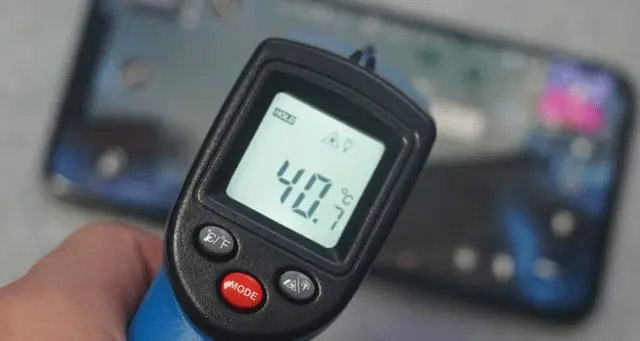
Another thing about batteries—they hate being fully charged all the time. Most modern iPhones have a feature called Optimized Battery Charging, which stops charging at 80% under certain conditions until needed. This helps reduce stress on your battery and extends its lifespan.
Tips for Battery Maintenance and Replacement
Proper care of your iPhone's battery can help extend its life. Remember, once the phone reaches a full recharge, it doesn't draw on the power anymore. So leaving it plugged in won't cause harm.
Apple Support advises to keep iPhones half-charged if they are stored for a long time. Also, avoid exposing your device to temperature extremes.
Battery replacement becomes necessary when capacity drops significantly. An iPod touch or an older iPhone might need this sooner than newer models because their original capacity starts reducing after about 500 charge cycles.
If you notice signs like unexpected shutdowns or poor performance even during normal use, consider getting your battery replaced.
Conclusion
Charging your iPhone overnight isn't the battery-killer you may have thought. Modern iPhones come equipped with smart features that prevent overcharging, meaning a full night's plug-in won't spell disaster.
A slow charging method can help maintain maximum battery life longer than fast charging options. But remember to avoid exposing your device to heat while it’s powering up; this can degrade its lifespan more quickly!
The optimized battery charging feature on newer models learns from your daily routine and slows down overnight power-ups once it hits 80%, further preserving overall health.
So will charging the iPhone overnight damage the battery? Not necessarily! It's important to recognize and utilize the right techniques in order to keep our devices functioning optimally for as long a time span as feasible.
 sales@batterydeji.com
sales@batterydeji.com



